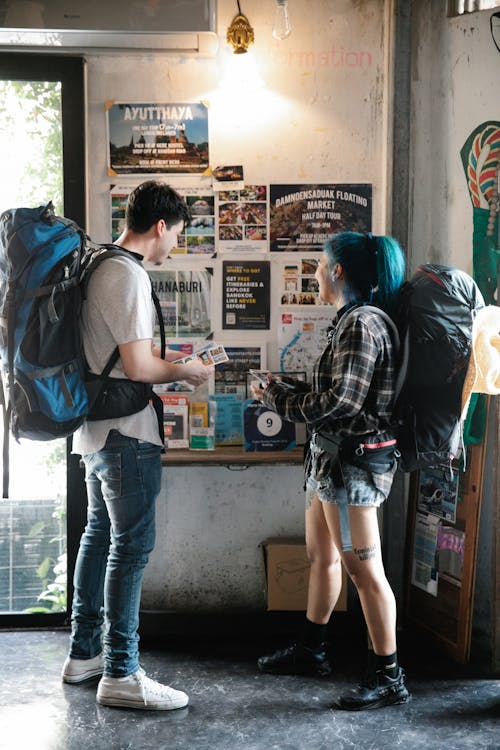Why Gen Z Travelers Prefer Hostels: A Look at Travel Habits in Singapore
A new wave of travelers is shaping the global tourism industry—and they’re doing things differently. Born between the late 1990s and early 2010s, Gen Z is emerging as a powerful travel demographic that values flexibility, authenticity, and social impact over the rigid, curated experiences favored by older generations. Nowhere is this shift more visible than in Singapore, a city that blends futuristic urbanism with centuries-old culture. And when it comes to where they stay, hostels top the list.
Gen Z’s preference for hostels in Singapore isn’t simply about cost. It’s a deeper reflection of how this generation views travel: as an experience to be lived, shared, and shaped. Their habits are redefining hospitality, pushing hostel culture beyond cheap dorm beds into a new realm of design, community, and purpose-driven accommodation.
A Generation Shaped by Digital Freedom and Social Connection
For Gen Z, the world has never been disconnected. Raised in an era of smartphones and social platforms, they are constantly connected to digital communities. But that same hyper-connected existence fuels a craving for real-world encounters. Travel, then, becomes a form of human reconnection—an opportunity to meet diverse people, share perspectives, and participate in global stories. Hostels provide the ideal setting for this.
In Singapore, where hostels are strategically located in vibrant neighborhoods like Kampong Glam, Chinatown, and Bugis, Gen Z travelers find a sense of rootedness and belonging. Unlike sterile hotel rooms that isolate guests, hostels foster communal interaction. Shared kitchens, rooftop lounges, coworking spaces, and group events offer both organic and curated moments for connection. For a generation that values inclusivity and shared experiences, these are essential features—not luxuries.
Affordability That Doesn’t Sacrifice Aesthetic or Experience
It’s easy to assume that budget concerns drive Gen Z toward hostels. While affordability matters, it’s only part of the equation. What matters more is value—and hostels in Singapore deliver that through thoughtful design and guest-centric perks. Sleek pod-style beds, well-lit common areas, and free Wi-Fi speak directly to Gen Z’s expectations.
This generation is also visually driven. Instagram and TikTok have turned travel into a canvas, and hostels that offer vibrant interiors, local art, or even quirky elements like swing chairs or wall murals become shareable backdrops. A stay becomes part of the narrative—a location not just to sleep in, but to showcase and remember.
Cultural Immersion and Local Access
Gen Z’s travel priorities center around cultural exchange and authenticity. They’re not interested in surface-level sightseeing. Instead, they seek out local stories, regional cuisine, and neighborhoods off the typical tourist path. Hostels play an essential role here by placing guests closer to local life. In Singapore, hostels tucked into heritage buildings, former shophouses, or arts districts enable guests to wake up steps away from indie galleries, hawker markets, and hidden cafes.
Some hostels even curate experiences that appeal to this desire for immersion—like guided food walks through Geylang or Peranakan storytelling nights. Gen Z travelers are drawn to these opportunities because they offer something no luxury stay can replicate: a personal connection to the city’s culture through real, lived moments.

Sustainability and Ethical Travel Values
One of the most distinct features of Gen Z is their collective awareness of global issues—particularly sustainability, climate change, and ethical consumption. Hostels that align with these values resonate deeply. In Singapore, many hostels now integrate eco-friendly practices, such as water-saving facilities, bulk soap dispensers, digital check-ins, and partnerships with local environmental groups.
For Gen Z, the choice of where to stay is a reflection of who they are. A hostel that reduces plastic waste, sources local furnishings, or supports fair employment doesn’t just win points—it earns loyalty. Sustainability is no longer an optional bonus; it’s becoming a baseline expectation for many young travelers.
Remote Work and Flexibility on the Go
The boundaries between work and travel have blurred, especially post-pandemic. Gen Z is embracing remote work and digital nomad lifestyles more than any previous generation. As a result, their accommodation needs have evolved. It’s no longer enough to offer a bed and Wi-Fi. Hostels in Singapore have adapted by offering coworking lounges, high-speed internet, quiet zones, and even booths for video calls.
Hostels become not just crash pads, but mobile bases of operation. For Gen Z, who may be attending virtual classes, launching side hustles, or managing freelance gigs while exploring Southeast Asia, the ability to stay productive on the move is essential. Singapore’s robust digital infrastructure and reputation for safety make it an ideal launchpad for this lifestyle.

Social Consciousness and Shared Economies
Another driver behind Gen Z’s love of hostels is their embrace of the shared economy. Growing up during global economic volatility, many Gen Z travelers are naturally cautious with money—but they’re not stingy. They’re happy to spend on meaningful experiences, while also valuing resource-sharing models that promote community and reduce waste.
The idea of sharing a space, whether it’s a dorm, bike rental, or meal, feels aligned with their values. Hostels fit into this model perfectly. They are inherently social, often community-run, and structured around the idea that everyone benefits by sharing space, stories, and resources. Singapore’s multiculturalism amplifies this dynamic, offering Gen Z the chance to live and learn with people from around the globe—while still being in one of the world’s safest cities.
The Rise of Hybrid Hostel Experiences
Recognizing the evolving tastes of Gen Z, hostel operators in Singapore are introducing hybrid concepts that blur the line between hotel and hostel. These spaces feature boutique design, private rooms alongside shared dorms, and high-end amenities like rooftop pools, in-house cafes, or art installations. They cater to Gen Z’s desire for personalization—allowing each traveler to choose how social, quiet, or curated they want their stay to be.
This flexibility is exactly what Gen Z craves. They want the ability to toggle between introspection and interaction, between solo exploration and communal adventure. Singapore, with its fusion of tradition and technology, provides the perfect setting for this balance.
Looking Ahead: What Singapore’s Hostel Scene Means for Gen Z Travelers
As Singapore continues to attract global talent, artists, students, and digital nomads, its hostel scene is likely to become even more dynamic. Already, hostels are doubling as galleries, event spaces, coworking hubs, and cultural bridges. Gen Z is not just occupying these spaces—they are shaping them through their expectations, feedback, and evolving travel behaviors.
The future of travel is not about luxury or exclusivity. It’s about inclusivity, intention, and connection. For Gen Z travelers in Singapore, hostels represent all of these values. They are affordable yet experiential, practical yet aesthetic, and communal yet deeply personal.



